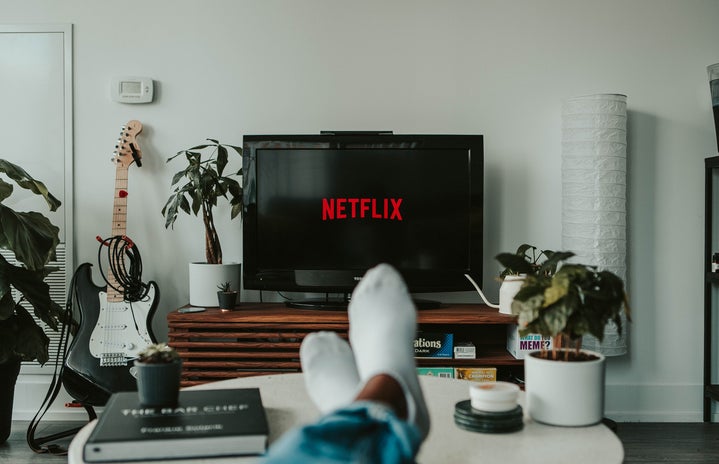True crime media content has increased in popularity significantly over the past few years. Netflix seems to be constantly pumping out new true crime documentaries and docuseries, stretching out episodes as much as they can to keep viewers watching for as long as possible. Netflix isn’t the only culprit though, as YouTubers dedicate their entire online careers to making true crime content, and I see new true crime podcasts appear on my Spotify almost every week. Evidently, there is a huge demand for true crime content: these podcasts and videos have dedicated subscribers and listeners who tune in every day to hear what true crime content creators have to say.
Admittedly, I am one of these people who are borderline obsessed with true crime content due to my morbid curiosity for all things disturbing. I think that true crime content has a lot of value, as it can help raise awareness of issues such as gender-based violence and can draw attention to cases that have been ignored by police, as well as shining a spotlight on the failures of the criminal justice system. But lately, I can’t help but see the major flaws and ethical problems in the creation of true crime content, and it has made me take a step back to re-evaluate my dedication to consuming this content. So, here is my list of problems I have with the true crime genre, as an avid true crime consumer.
1. The dehumanisation of victims
The true crime genre has an infamous reputation for exploiting pain for viewers and profit. When consuming a piece of true crime media, it’s important to take a step back from the content and question the ethics behind the whole operation. For example, behind every true crime case are victims and their families who have identities that become lost behind their traumas. I don’t think I remember anything about the lives or personalities of victims beyond their brutal deaths or the suspicious circumstances surrounding their disappearances. The creation of true crime content is thus dehumanising and violating for victims, particularly murder victims, who will always be remembered alongside their killers. Far Out Magazine explains this phenomenon well, stating that “these victims are forgotten in the details of the murder itself, with their lives, personality, and past made to feel like mere trivia as part of a bigger mythos that surrounds the serial killer in subject.” This constant association with perpetrators of violence removes any sense of their personal identity as well as their dignity.
Additionally, victims and their families are forced to relive their traumas with every retelling of their stories and are forever trapped in the worst moments of their lives for the sake others’ amusement. Much true crime content handles these cases without much sensitivity, such as the infamous documentary series The Secret. In an interview, Lauren Bradford, a family member of the victim, explains that she felt “propelled into a new world of trauma” and that their family tragedy was exploited for entertainment.
2. The glorification and fetishization of killers
Who doesn’t want to hear about how messed up and dark the human psyche can become? How does a normal person become a serial killer? Their body count is HOW MUCH?! Their methods were that gory and calculated? These are the hooks that keep us watching, and unknowingly we become part of the problem. Not only does the focus on the gruesome details dehumanise the victims behind the violence, but it also glorifies the killers and gives them the spotlight and attention that they crave. When getting caught up in the details, we’re granting them a legacy, a claim to fame, which if you really think about it, is quite messed up. If I must hear one more person explain how clever and charming Ted Bundy was, or how the Zodiac Killer was a genius for his methods, I think I’ll just scream. There are also countless TikTok accounts dedicated to various renowned serial killers pardoning their actions on the premise that they’re good-looking. And no, I’m not kidding.
Far Out Magazine also explains that this focused attention on mass murderers encourages copycat behaviour, because who knows? Maybe if they follow in their footsteps, they’ll get a Netflix docuseries made about them someday! The chances are likely. This certainly was the case for the murderer behind Don’t F**k with Cats.
3. Desensitisation to violence
When devouring these gruesome stories at a rapid pace (I am guilty as charged, your honour), you become accustomed to hearing about horrific details that usually make your skin crawl. If it bleeds it leads, right? This is a dangerous place to find yourself in. You start listening to your usual murder-oriented podcast and start to think to yourself “well that was unoriginal”, or “at least that death wasn’t as bad as [insert victim here]”. Sometimes I find myself bored listening to a podcast episode because the content seemed ‘boring’ in comparison to others I had listened to previously. I don’t think I need to explain why comparing the trauma of one victim to another is grim. This mindset invalidates the experiences of other victims, and this can bleed into your own life (pardon my metaphor), as you can become more apathetic to the pain of others around you. In extreme cases, this can lead to aggressive behaviour in people. Of course, not everybody will have this sort of reaction, but regardless, it is a concern that is worth thinking about. I think it’s important to take a step back and think about how this sort of content might be affecting you.
4. Missing white woman syndrome
Missing white woman syndrome refers to the mainstream media’s preference to cover cases of missing white women, and their disinterest in covering cases involving missing people of colour. While it is important to cover cases of missing or endangered white women in order to raise awareness, the issue lies in that missing people of colour don’t receive the same amount of media attention and are often forgotten in the process. This perpetuates the idea that people of colour are less important, and that their victimhood is less deserving of media coverage, law-enforcement response, and public attention, which is incredibly damaging.
Furthermore, lawyer Zach Sommers explains that news coverage is also determined by which stories are going to attract more readers and ad revenue, thus equating victimhood with economic profit. So, not only is the trauma of victims (particularly young, attractive white women) being exploited for entertainment purposes and the profit of media organisations but missing people of colour aren’t given much media attention at all – there’s no win here, morally speaking. There’s only a profit benefit, but there is no justice in this process.
I don’t mean to scold anyone for consuming true crime content because wow, that would be very hypocritical of me. But I think we can all take a step back from the content we watch and think critically of the ethics behind it, and the possible consequences it has for ourselves, for society at large and for the families behind the tragedies. I don’t think true crime content is coming to a halt anytime soon, so I think that it’s important to keep in mind the following things: is this honouring or respecting the life of the victims and their families? Is this glorifying the violent perpetrator? What stories are being shown, and whose stories have been marginalised?


